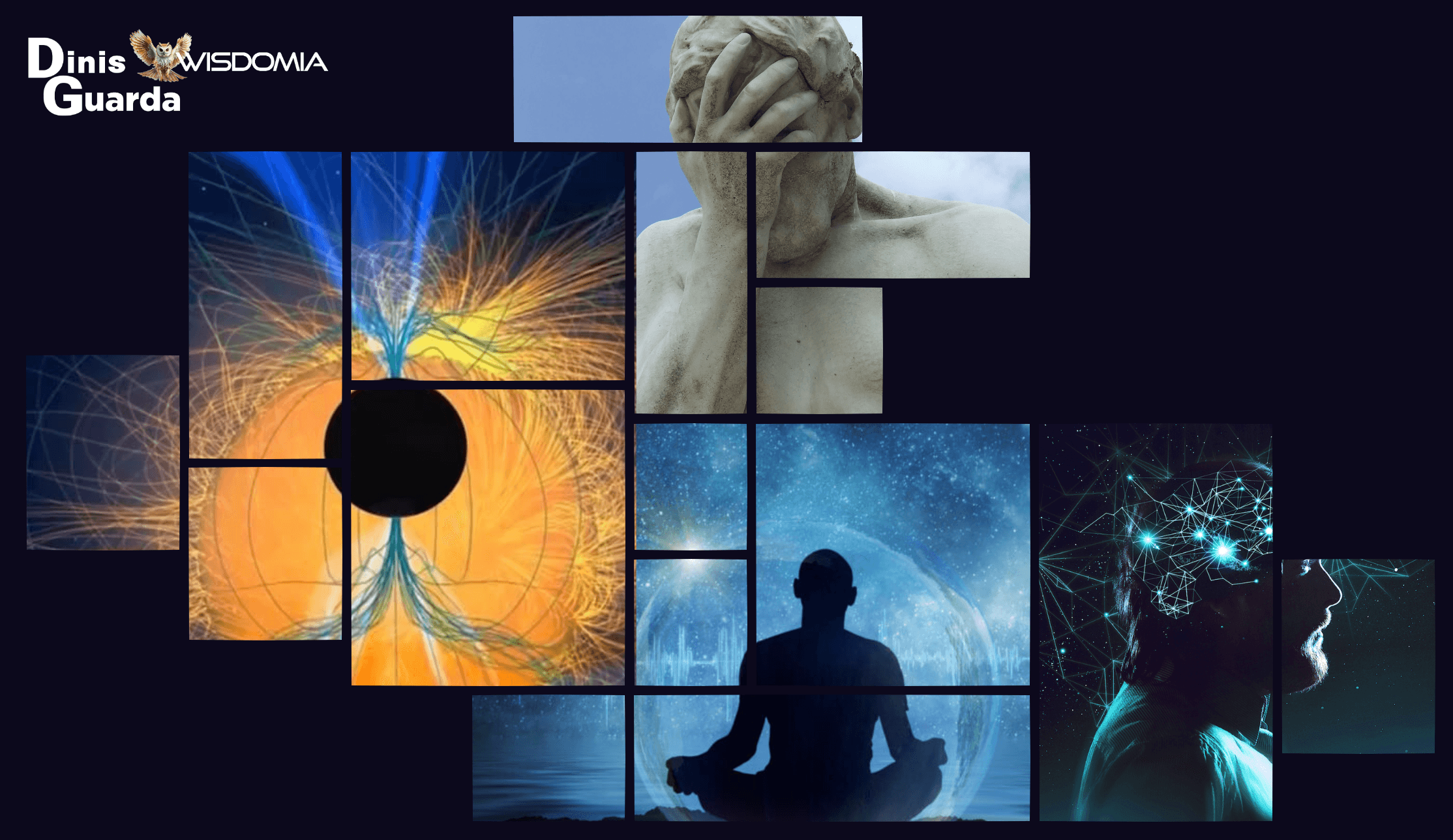Reason, Fiction, and Faith: The Work of Steven Pinker and Rebecca Newberger Goldstein in the age of AI
Maria Fonseca
Mon Jun 23 2025

Steven Pinker and Rebecca Newberger Goldstein form a rare intellectual couple whose work straddles the domains of science, philosophy, literature, and public discourse. At the heart of their shared intellectual mission is the belief that reason, far from being cold or reductionist, is a powerful and humane force capable of improving human flourishing. Pinker’s empirical analyses and Goldstein’s philosophical narratives both offer a counterweight to the modern tendency to dismiss rationalism as naïve or sterile, so long reason is infused with empathy and humanistic insight, thus providing the best available path toward a more just, ethical, and meaningful society.
In the quiet of a sunlit study lined with books, located in Cambridge, Boston, I can imagine the humming sound of ideas in motion. Those ideas are crossing the minds of Steven Pinker and Rebecca Newberger Goldstein, who might be found sipping coffee, exchanging thoughts on Plato, Spinoza, or the future of humanity. As partners in both life and thought, I can imagine their conversations moving effortlessly between neuroscience and moral philosophy, statistics and storytelling, Enlightenment ideals and ancient wisdom. Though each has a distinct voice—Pinker’s shaped by cognitive science and evolutionary psychology, Goldstein’s by philosophy and fiction—they share a profound commitment to the transformative power of reason in it's original sense derived from the Latin "ratio". Together, they explore what it means to think clearly and live wisely in a world where reason, fiction, and faith continue to shape the human story, in times of AI.
Steven Pinker and Rebecca Newberger Goldstein form a rare intellectual couple whose work straddles the domains of science, philosophy, literature, and public discourse. Though each has carved an independent and distinguished path—Pinker as a cognitive psychologist and defender of Enlightenment rationalism, and Goldstein as a philosopher-novelist bridging ancient thought with contemporary life—their intellectual projects often converge on shared themes. Chief among these is the role of reason in human progress, the narrative frameworks that shape our moral imagination, and the tensions and possibilities that arise when reason encounters faith.
At the heart of their shared intellectual mission is the belief that reason, far from being cold or reductionist, is a powerful and humane force capable of improving human flourishing. Pinker’s empirical analyses and Goldstein’s philosophical narratives both offer a counterweight to the modern tendency to dismiss rationalism as naïve or sterile, so long reason is infused with empathy and humanistic insight, thus providing the best available path toward a more just, ethical, and meaningful society.
Steven Pinker: Reason as Enlightenment’s Legacy
Steven Pinker’s work has long been know for his books such as The Blank Slate, The Better Angels of Our Nature, Enlightenment Now, and Rationality: What It Is, Why It Seems Scarce, Why It Matters. Pinker argues that reason and scientific thinking have played a central role in reducing violence, increasing prosperity, and expanding human rights. His TED talk Is the world getting better or worse? A look at the numbers" seen by more than 4 million viewers , highlighted a world that, while far from perfect, had made measurable moral progress. Contrary to the fashionable cynicism of some postmodern critics, Pinker insists that data and reason reveal the positive evolution of the world!
In Enlightenment Now (2018), Pinker explicitly defends Enlightenment values —namely reason, science, humanism, and progress. The book is both a celebration of the gains humanity has made and a rebuttal to the widespread pessimism in modern intellectual and political culture.. The book opens with a quote from Baruch Spinoza— “All things excellent are as difficult as they are rare.” Being one of Goldstein’s favorite philosophers, Spinoza was one of the first secular thinkers, who broke from religious orthodoxy to propose a naturalistic worldview. Following on the footsteps of Spinoza, for Pinker, reason is not a mere tool; it is an orientation toward truth-seeking, toward error-correction, and toward building systems—legal, scientific, moral—that allow us to transcend our tribal instincts and cognitive biases.
However, Pinker is not naïve about the limits of human rationality. He acknowledges, drawing on cognitive psychology, that humans are prone to a host of logical fallacies, confirmation biases, and emotionally charged heuristics. What matters, he argues, is that we construct institutions—science, free press, democratic debate—that help amplify collective rationality beyond individual limitations. In this, his views converge with his wife’s deeper philosophical and literary reflections on the moral and metaphysical stakes of reason.
Considering Pinker' views on contemporary topics, such as AI, his views are grounded in commonsensical reason. He argues that AI is not “alive” or “conscious”, nor is it evolving independently. It’s a human-made tool, built to perform specific tasks, not a self-replicating intelligence with its own goals.
"AI is not going to turn evil, it’s not going to develop malevolent goals, because it’s not going to develop goals at all."
— Steven Pinker
He stresses that humans are in control of AI systems and the real risks come from misuse by humans, not from autonomous AI suddenly becoming sentient. This places the ethical burden not on AI itself, but on the social, political, and economic structures governing its use.
Rebecca Newberger Goldstein: Plato and the Power of Fictional Philosophy
Rebecca Goldstein’s work offers a complementary yet distinct approach to the question of reason. Trained as a philosopher and celebrated as a novelist, Goldstein has long explored the intersection of rational argument and emotional, fictional experience. In her imaginative book Plato at the Googleplex: Why Philosophy Won’t Go Away (2014), she uses a fictional framework—imagining Plato on a modern book tour—to ask whether ancient philosophy can still speak meaningfully in our digital, secular age.
In Plato at the Googleplex, Goldstein’s Plato visits cable news studios, parenting blogs, and neuroscience labs, encountering contemporary versions of old philosophical questions: What is virtue? Can moral truths be objective? Is reason enough to build a meaningful life? Through these fictional dialogues, Goldstein dramatizes a central thesis: that philosophy remains vital because it asks questions that science alone cannot answer.
Goldstein's Plato is not merely an anachronism but a Socratic figure updated for the 21st century. He probes the assumptions of our most technologically advanced thinkers, reminding readers that reason is not just a computational faculty but a moral and existential practice. By weaving fiction and philosophy, Goldstein reinvigorates Plato’s method of inquiry—not as a relic of a pre-scientific age but as a living tradition of moral self-examination.
This blending of narrative and philosophy highlights an important theme in Goldstein’s work: that fiction can serve as a vehicle for moral and philosophical insight, sometimes more effectively than analytic exposition alone. Her earlier novels—such as The Mind-Body Problem and 36 Arguments for the Existence of God—explore themes like Jewish identity, atheism, and romantic longing through characters who are also philosophical stand-ins. In this way, Goldstein offers a form of public philosophy that is both intellectually rigorous and emotionally resonant.
Fiction and Faith: A Creative Tension
Both Pinker and Goldstein approach in their thinking, the place of faith in modern life. While neither subscribes to religious belief—they take different approaches to how faith interacts with reason and human meaning.
Pinker tends to view religion primarily through the lens of cognitive psychology and evolutionary adaptation. He sees religious belief as a natural by-product of human cognition—our tendency to ascribe agency, seek causality, and form group identities. In The Better Angels of Our Nature, he argues that secular, rational societies tend to be more peaceful and tolerant, and that faith-based moral systems often trail behind moral progress rather than lead it. However, Pinker also distinguishes between personal spirituality and dogmatic faith, recognizing that many find comfort in ritual, tradition, and narrative without literal belief in the supernatural.
Goldstein, on the other hand, engages with faith as a philosophical and literary phenomenon. In 36 Arguments for the Existence of God, she crafts a narrative around an atheist psychologist who finds himself reluctantly drawn into debates with religious thinkers. The book’s appendix offers an actual list of arguments for and against God's existence—some sincere, others satirical—mirroring the kind of philosophical play that defines her method. Rather than ridicule faith, Goldstein seeks to understand what kinds of existential and emotional needs it fulfills, and how reason might respond not just critically, but compassionately.
In her view, Goldstein emphasizes that reason must contend with the full complexity of the human experience, including the yearnings and vulnerabilities that often lead people to faith. While she defends secularism and the moral sufficiency of reason, she opposes the reduction of religious belief to mere irrationality. This nuance adds depth to her dialogues with Plato, who himself explored the intersection of myth, reason, and the soul’s longing for transcendence.
The Mirror of Modernity: Reason and the Human Future
What unites the work of Pinker and Goldstein is a shared optimism—tempered but resolute—that reason, when allied with imagination and empathy, can guide humanity toward better futures. They differ in emphasis—Pinker is more empirical, Goldstein more existential—but both resist the despair that characterizes much contemporary thought.
Their dialogue also underscores the importance of interdisciplinary engagement. Pinker’s scientific insights into language, mind, and society find philosophical depth in Goldstein’s narratives and ethical inquiries. Goldstein’s philosophical arguments gain empirical grounding and cultural relevance through Pinker’s data-driven approach. Together, they model what public intellectual life can be: rigorous, generous, imaginative, and humane.
Plato at the Googleplex is especially emblematic of their shared project. In reintroducing ancient thought into the digital agora, Goldstein suggests that the philosophical questions of old remain relevant today—not because they offer easy answers, but because they demand better reasoning. Plato’s dialogues, like Pinker’s graphs, are tools to sharpen our understanding, to illuminate blind spots, to invite the kind of intellectual humility that is the precondition for real progress.
Toward a Wiser Rationality
In an age of algorithmic amplification, tribal polarization, and moral confusion, the work of Steven Pinker and Rebecca Newberger Goldstein may offer a vital counterpoint. They remind us that a balanced reasoned intellect is not the enemy of feeling, nor the antithesis of story or spirit. Rather, it is the scaffold on which we can build more coherent, just, and meaningful lives.
Goldstein's fictional Plato walks into the Googleplex not as a ghost of the past, but as a necessary provocateur of the present. Pinker’s data-driven optimistic view of the world, and balanced thoughts on AI, charts a path forward based on what humanity has already achieved when guided by science and reason. Together, they call not just for more intelligence, but for more wisdom—the kind that can bridge the realms of fiction and faith, emotion and argument, the ancient and the modern.
In doing so, they invite us all to become, in the truest sense, lovers of wisdom.
Share this

Maria Fonseca
Maria Fonseca is an interdisciplinary educator, writer, artist and researcher whose work bridges the realms of academic knowledge, community engagement, and spiritual inquiry. With a background in Fine Art and a doctorate in creative practice, Maria has spent over a decade exploring the intersections of human experience, cultural meaning, and collective transformation.
More Articles

Community as Classroom: When the Village Teaches : Redefining Where Learning Happens

Each Being Is Humanity: The Cosmic Responsibility of Conscious Participation

When Ancient Wisdom Met Quantum Physics: The Philosophical Synthesis

The Mirror Universe: Why Reality Reflects All Your Signals

Who Does What: The Stakeholder Action Plan for Universal AI Accessibility





